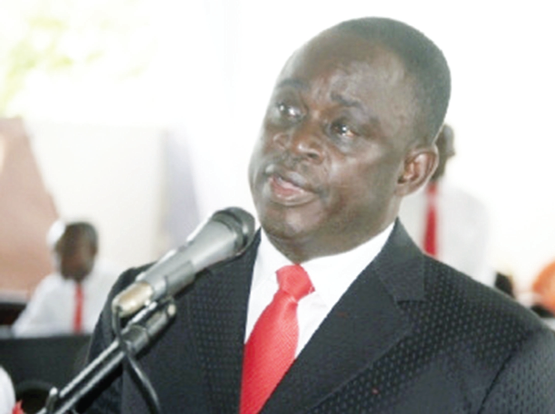The payment of ex gratia to members of the Council of State must be reviewed to meet the economic realities of the day, a former member of the council, Nana Adjei Ampofo, has said.
He said the review should look at the quantum of money paid to the members, noting that from the figures available to him now, the amount was on the high side.
Although he would not suggest what amount should to be paid to the council members as ex gratia, Nana Ampofo, who is a legal practitioner of about 45 years’ standing, said: “I believe that past and present members of the council have been hearing the views of Ghanaians on the ex gratia. Even though many people think that the payment is justifiable, they still think that having regard to the economic situation of the country, the payment should be reviewed downwards.”
Nana Ampofo, a former Omanhene of the Goaso Traditional Area, twice served as the representative of the then Brong Ahafo Region on the Council of State from 1993 to January 2001.
Context
He spoke with the Daily Graphic in Accra yesterday on the back of the return of the ex gratia of GH¢365,392.67 paid to a former member of the council, Togbe Afede XIV, which had reignited the debate for the scrapping of the payment.
Explaining why he returned the money, Togbe Afede, who is the Agbogbomefia of Asogli, said: “I did not think the payment was made to trap me, as is being speculated. I believe it was paid to everybody who served on the Council of State. However, I thought that extra payment was inappropriate for a short, effectively part-time work for which I received a monthly salary and was entitled to other privileges, so I was very uncomfortable with it.”
No scrapping
Nana Ampofo would not subscribe to the view that the payment of ex gratia to members of the Council of State should be scrapped.
“They deserve it,” he insisted, explaining that although the members of the council, who constituted part of Article 71 holders, worked part-time, the kind of work they did was worth more than what some full-time workers did.
Describing Togbe Afede as a very truthful person, Nana Ampofo said: “I am not surprised he returned the money.”
Council still relevant
He maintained that the Council of State was still relevant in the affairs of the nation.
He posited that although the President appointed advisors for virtually all sectors of national development, those advisors could not take over the duties of the council, as prescribed by the Constitution.
The legal practitioner and former paramount chief asserted that although some of the advisors were bold and ready to provide useful advice to the President, others were so politically blinded that they overlooked many critical issues.
“The President may have friends who may advise him, but we need an official group of advisors or an advisory body that is expected to be non-partisan. Even though you can’t have it 100 per cent non-partisan, the composition of the council is such that when members are taking a decision, they are expected to be fair and non-partisan. I can say without any shred of equivocation that, to a large extent, some of them are fair and non-partisan,” he stated.
Stronger teeth
Nana Ampofo said the constitutional provision establishing the Council of State needed amendment to make some of the pieces of advice the council gave become directives.
“Reasonably, the Council of State must remain advisory in nature, but there is the need to give the council sharper teeth. It appears to have very old teeth and so its authority must be strengthened through the provision of stronger teeth,” he said.
He said at least there could be a constitutional provision that would compel the President to give reasons for rejecting a piece of advice given by the council.
“In some cases, if the council feels bad about something and advises the President on it, and reasonably so, there must be a provision that will compel the President to have another look at the issue or that could compel the President to abandon the idea,” he said.
Experience
Expatiating on the relevance of the Council of State, Nana Ampofo recalled how the council on which he had served, which was chaired by the late Alhaji Mumuni Bawumia, had, at a point in time, told the President at the time, Jerry Rawlings, that the force used to quell the Kumepreko demonstration was excessive.
“We also, at a point, told him that he should have been more tolerant with then Vice-President Arkaah in the Jemimah Yalley case.
“Again, we pointed out to him the general hardship in the country and asked him whether he knew the price of a ball of kenkey,” he said.
“In all that, he smiled, and as accommodating and honest as the former President was, he said we were entitled to our opinion, but promised that he would take what we had told him,” he added.
Article 71 office holders
Article 71 office holders include the President, Vice-President, Members of Parliament, Ministers of State, members of the Council of State, political appointees and public servants with salaries charged to the Consolidated Fund but enjoying special constitutional privileges.
Article 71 (1) and (2) of the 1992 Constitution stipulate that the determination of the salaries and allowances of the Executive, the Legislature and the Judiciary paid from the Consolidated Fund will be determined by the President, on the recommendations of a committee of not more than five persons appointed by him and acting upon the advice of the Council of State.
The President approves the ex gratia of Parliament and other Article 71 holders, save that for himself/herself, while that of the President and the Executive is approved by Parliament.

